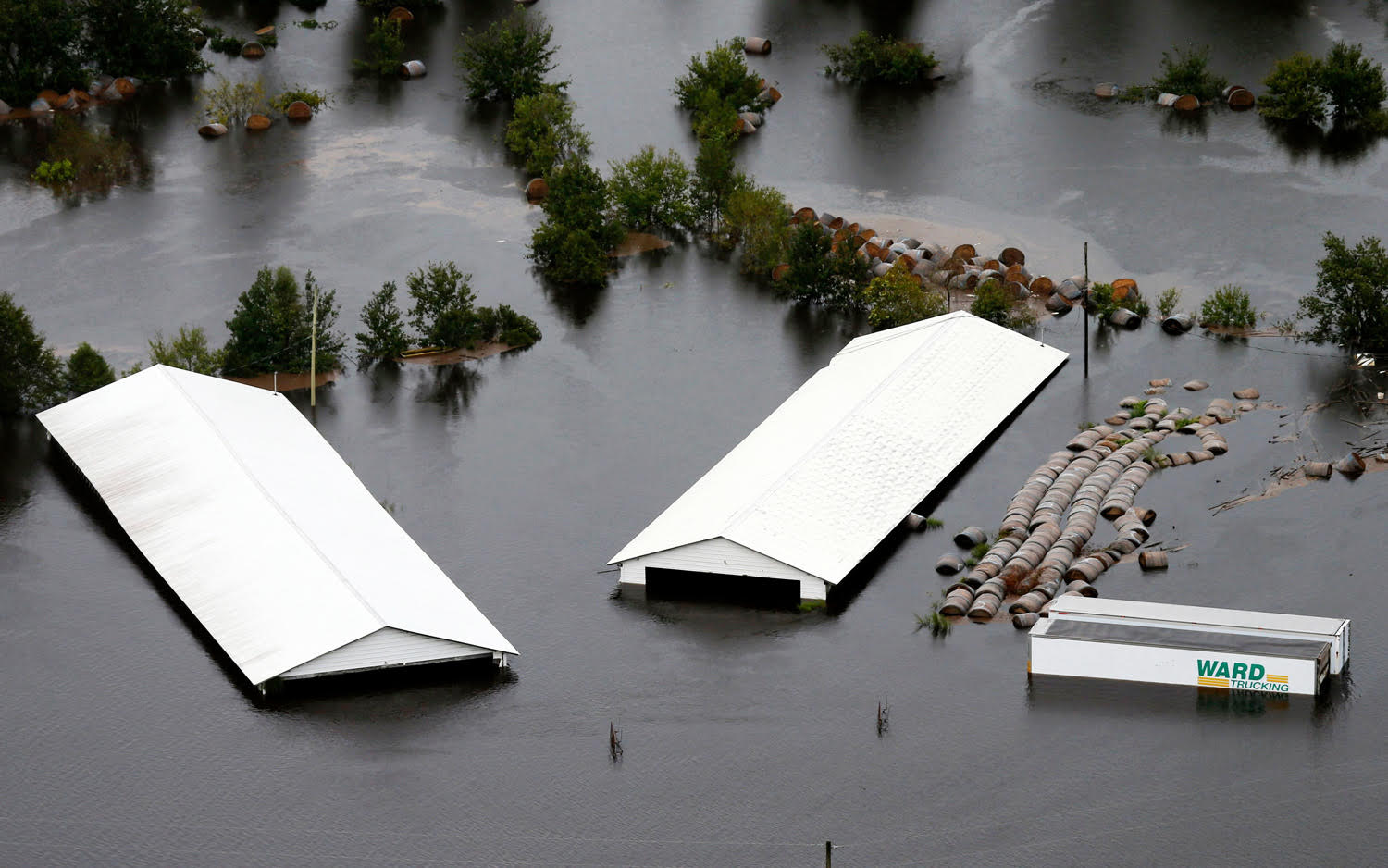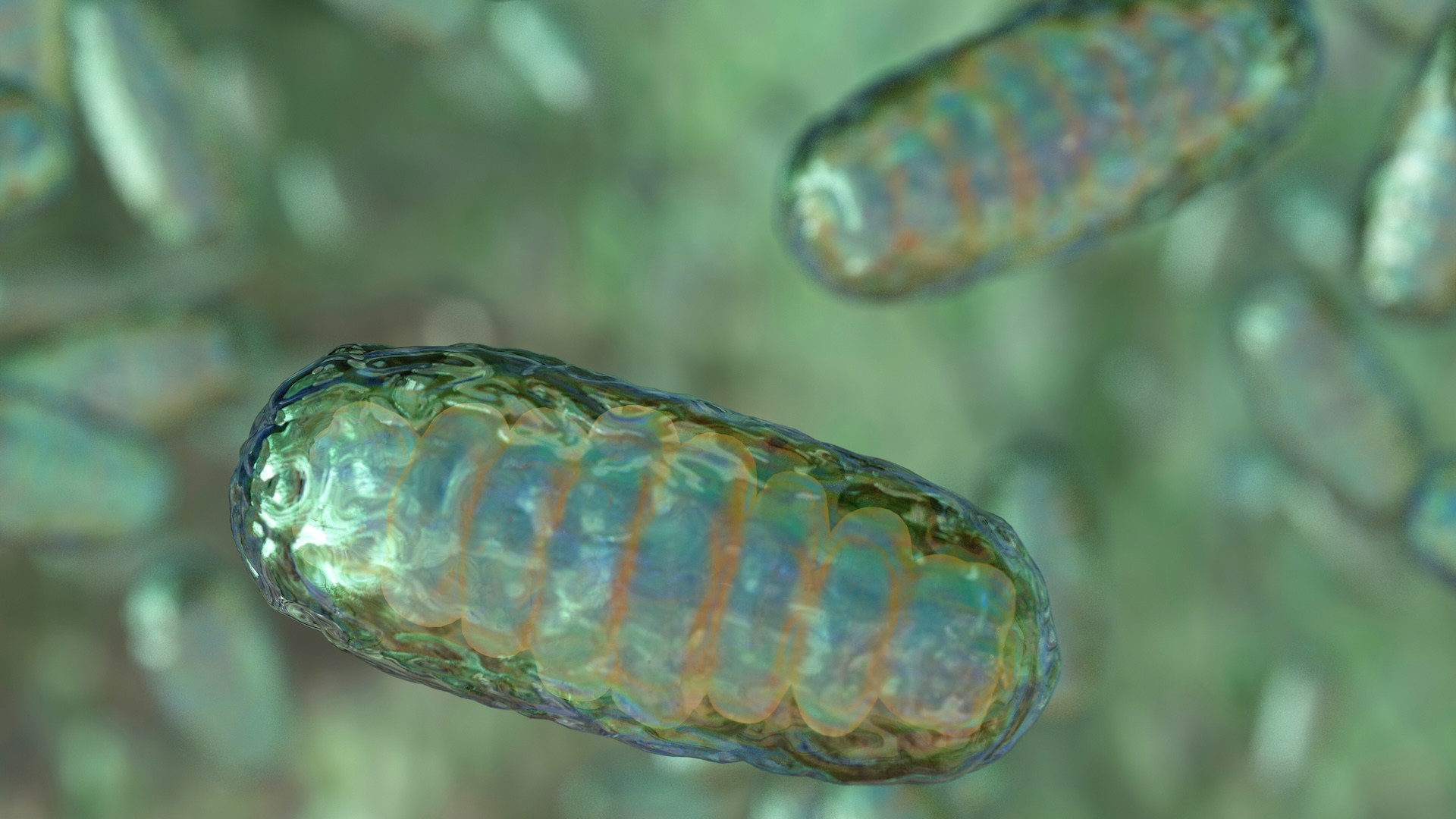
Florence Unleashing a Flood of Pig Poop on North Carolina

Heavy flooding from Hurricane Florence is causing a pig-poop problem in North Carolina.
Pig waste often gets flushed into nearby lagoons in the state, and because of the heavy rain and flooding from the tropical storm, 21 such pig-manure lagoons "overtopped" and released that pig waste into the environment, according to numbers released by North Carolina's Department of Environmental Quality today (Sept. 19).
At least 36 other similar lagoons are likely to also overflow — and five are structurally damaged, according to the department. [Hurricane Florence: Photos of a Monster Storm]
North Carolina is the second-largest hog-farming state in the U.S., according to Quartz. It has around 2,100 industrial-size hog farms with waste lagoons that hold pig manure and poop-eating bacteria. As for the source of the waste, the state houses over 9 million pigs, many of which live in the storm-affected Sampson and Duplin counties, according to the BBC.
If waste gets out of these pig-waste lagoons, it could wreak havoc on the environment, according to The New York Times. For example, in 1999, rain and flooding from Hurricane Floyd caused waste to enter rivers — and what followed were algal blooms and mass fish die outs.
There is also some concern that hog lagoons and their farms could harm human health, according to the Times. For example, excess nitrate in groundwater (that can also come from pig manure) could potentially cause what's called blue baby syndrome — a condition caused by contaminated drinking water in which nitrogen can block the ability of red blood cells to carry enough oxygen, causing a baby's skin to turn blue, according to the Times.
Before the storm, some farmers drained portions of their waste lagoons by pumping out liquid and spraying it as fertilizer onto their fields, according to a previous Live Science report. But according to the Times, if the fields that were sprayed were later flooded, the pig waste sprayed as fertilizer could also leak into rivers, streams and groundwater.
Get the world’s most fascinating discoveries delivered straight to your inbox.
The number released by the state's Department of Environmental Quality is based on reports from farmers, according to the Times. And the number of affected lagoons may well be higher, they wrote.
Originally published on Live Science.

Yasemin is a staff writer at Live Science, covering health, neuroscience and biology. Her work has appeared in Scientific American, Science and the San Jose Mercury News. She has a bachelor's degree in biomedical engineering from the University of Connecticut and a graduate certificate in science communication from the University of California, Santa Cruz.
